

Tōtara
Pegasus Health Pānui
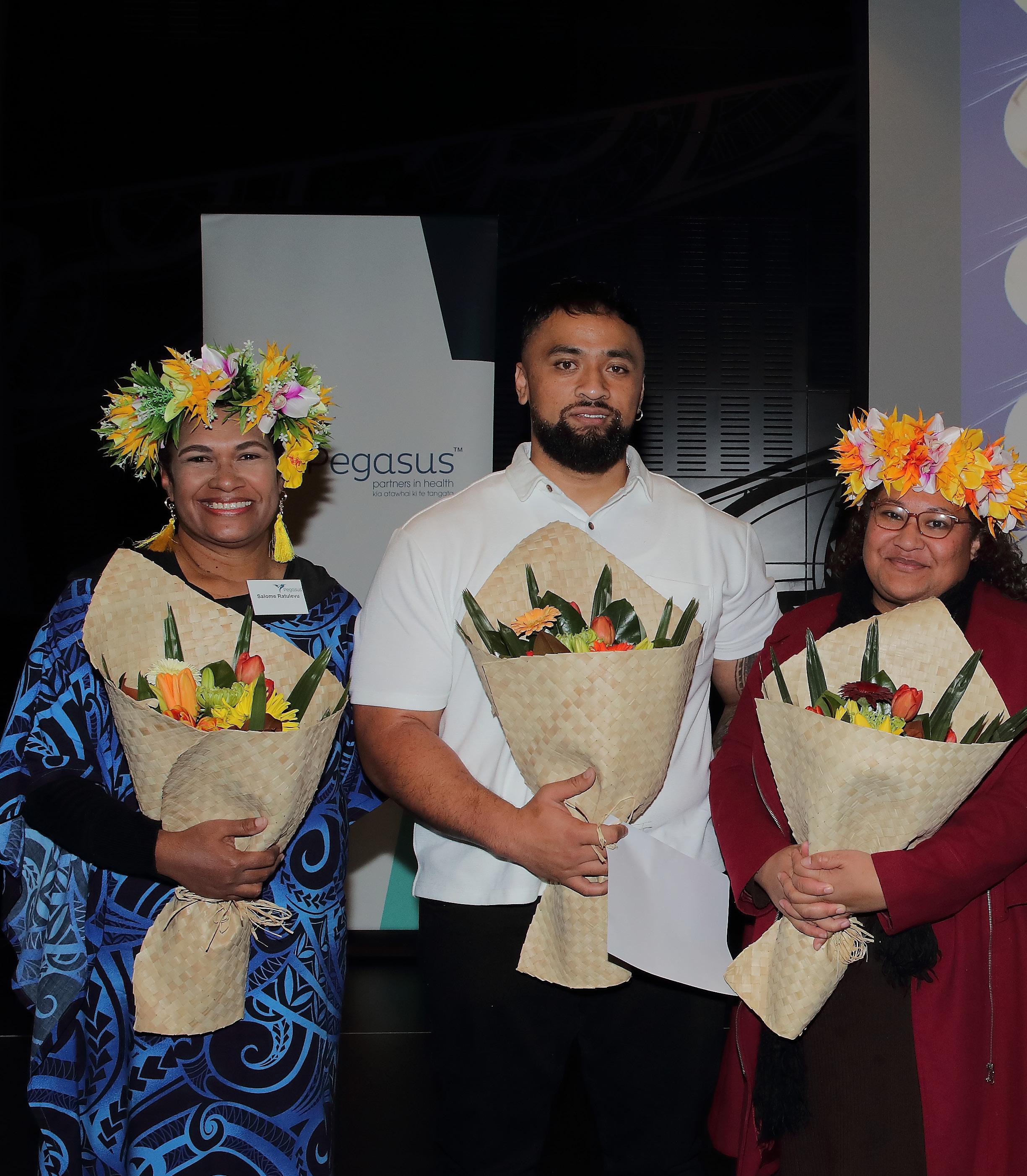

Welcome to Tōtara Pegasus Health Pānui
Pegasus House stands on land that was previously a dense Tōtara forest. Tōtara is a name that honours our home’s past. Just like the Tōtara tree that thrives in the forest, soaring towards the sky and Ranginui, we create this newsletter with the aim of highlighting excellence in primary care and to support others to similarly flourish and strengthen.
Each issue of Tōtara Pegasus Health Pānui features stories, interviews, and new initiatives from across Waitaha Canterbury.
If you have a story, you would like our team to cover, please email communication@pegasus.health.nz
Tōtara Pegasus Health Pānui is produced by the Communications Team at Pegasus Health. Content within Tōtara Pegasus Health Pānui has been included with the approval of content providers. If you wish to reproduce, alter, or transmit any of the information or images contained within, please contact communication@pegasus.org.nz
Pegasus Health
Pegasus Health is a charitable organisation committed to improving health outcomes for the people of Waitaha Canterbury, through innovation in service design and delivery, enabling and supporting primary care teams, collaboration with partners and continuous improvement.
We are dedicated to ensuring that all people have access to the primary health care they need, when they need it, closing the health equity gap and investing in healthy lifestyles and screening services.
Our purpose is that All people who live in Canterbury lead healthy lives, and our role is Together making Canterbury the best place to receive and provide primary care.
Our values of Inclusive, Strive, Connection, and Integrity, are underpinned by our guiding principle of Manaakitanga, to create the fabric of our ways of being as an organisation.
Pegasus has a commitment to ensure that we overtly, purposefully, and strategically thread equity and Te Tiriti o Waitangi through all we do and how we operate.
We ensure equity is prioritised in our considerations, structures, decisions, and processes so that we are able to improve the health outcomes of all people and communities in Waitaha Canterbury.
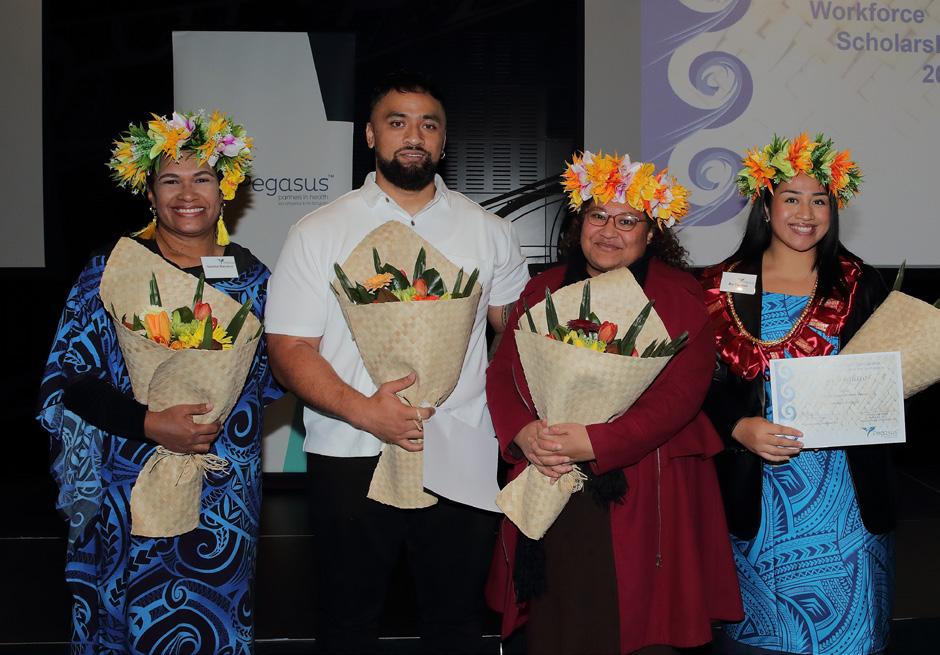
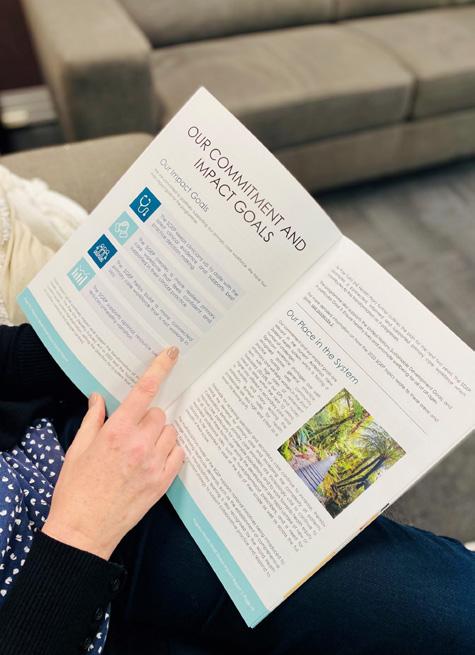

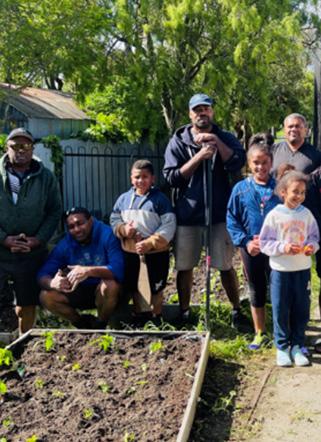
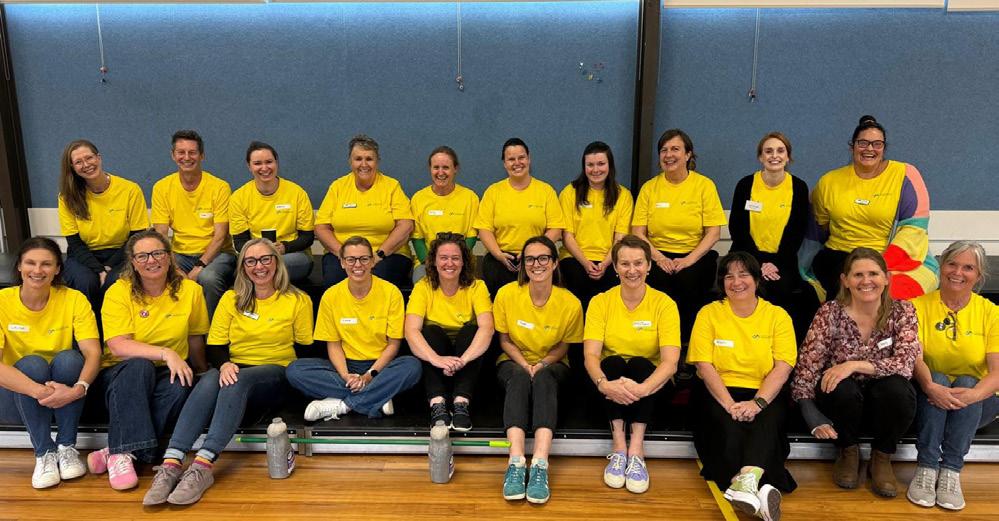
Message from the Chief Executive
Kim Sinclair-Morris
Tēnā koutou katoa,
We celebrated our 23rd annual Workforce Development Scholarships last month, and it was truly an inspiring night. Fifteen outstanding individuals from Māori, Pasifika, and CALD backgrounds were awarded scholarships. They shared their stories, emphasising their commitment to community health and wellbeing and the importance of support from their whānau. I would like to congratulate these students and look forward to collaborating with them on their journey in the health system.
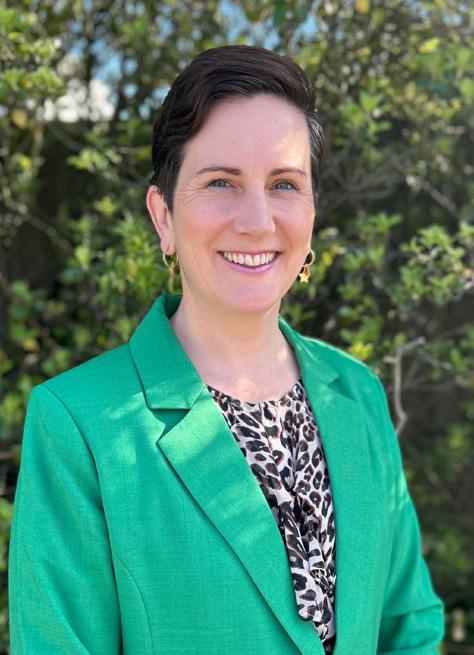
been harnessed to promote healthy living and community resilience among the Fijian population in New Zealand. I encourage you to give this a read
We are now in the middle of winter, with considerable pressures across urgent care clinics, emergency departments, and general practice teams. It is essential we are not simply shifting the pressure from one area to another. Our winter pressures campaign aims to educate patients on the wide range of healthcare options available to them, to avoid overwhelming any single area. Please feel free to utilise our toolkit in your practices and communities.
In each issue of Tōtara we feature stories, interviews and new initiatives across Waitaha. If you have a story that you would like to feature in a future issue, please contact our team via email, communication@pegasus.health.nz.
The Clinical Quality Education team published their first social impact report in June. The team collaborated with Kin Strategy to understand, measure, and report on the very real impact on clinical practice and patient care of their Clinical Connect Peer Education Programme (formerly Pegasus Small Group Education). There is a feature on the next page of this pānui with more information and a link to read the full report.
I am proud to highlight our Pacific Health Manager, Esala Vakamacawai, who has published an important report on the burden of Type 2 Diabetes Mellitus (T2DM) in the Pacific Islands. It showcases how the Fijian tradition of Solesolevaki, or communal work, has
We hope you enjoy this issue and as always, we welcome and encourage feedback.
Ngā mihi nui,
Kim Sinclair-Morris Pegasus Health Chief Executive Officer
“Nāu te rourou, nāku te rourou, ka ora ai te iwi”
With your basket and my basket,
we will sustain everyone.
Positive impacts of Clinical Connect Peer Education Programme
For over 30 years, the Clinical Connect Peer Education Programme has been supporting primacy care clinicians. Their newly released social impact report delves into their impact across Waitaha Canterbury.
The Clinical Connect Peer Education Programme (formerly Pegasus Small Group) was founded in the 1990s to support best practice for general practitioners (GPs), particularly around prescribing and use of lab tests. Key to the success of the programme is its focus on evidence, utilisation of data, independence from industry bias, and dedicated primary care focus - factors that have remained consistent since the programme began over 30 years ago.
Today the programme supports 1,000 primary care clinicians (GPs, nurse practitioners, practice nurses, and community pharmacists) across Waitaha, representing 87% of the practices and pharmacies in the region.
“I am part of a multidisciplinary team group, so that also allows me to see the world through the pharmacist’s eyes which is invaluable,” Practice Nurse attendee.
With the programme uniquely offered across multiple professions alongside the increasing focus on social determinants to support best practice healthcare, it was time to look at how to tell the story of impact beyond use of resources alone.
The Clinical Quality & Education team are excited to share with you their first social impact report which you can read here: Impact Report – Clinical Connect
Key highlights:
• Redefined impact goals, a new impact measurement strategy and framework
• Positive impacts on knowledge, capability, and confidence of individual clinicians in Waitaha
• Growth in the programme in Waitaha creating opportunities for connected and resilient primary care clinicians and workforce
• High relevance of 2023 topics, supporting the delivery of best practice primary care.
“Small group brings together all the GPs, the health professionals up to speed and allows that time for reflection and support so it benefits both patients from a clinical point of view and the health professionals from a support point of view,” GP attendee.
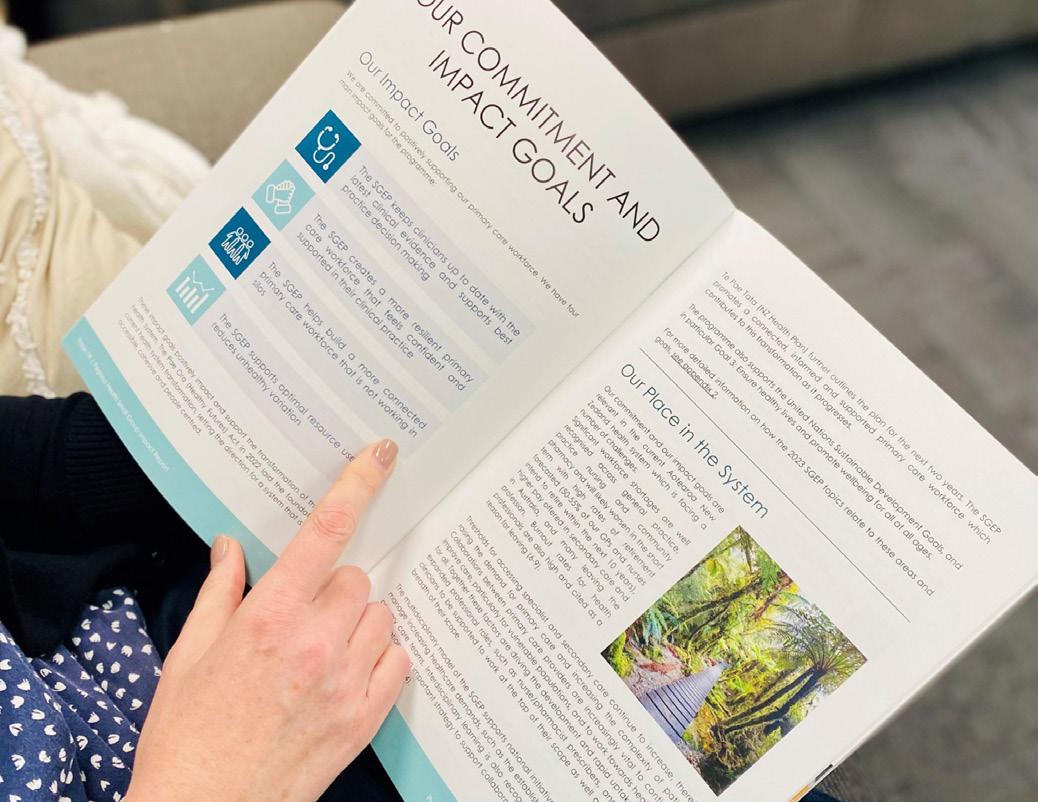
Pegasus Health celebrates 23rd annual Workforce Development Scholarship
Established in 2001, the Pegasus Health Workforce Development Scholarships support Māori, Pacific, and CALD (Culturally and Linguistically Diverse) students pursuing health qualifications. The 2024 ceremony awarded fifteen outstanding individuals with scholarships.
The 23rd annual Pegasus Health Workforce Development Scholarship ceremony was a night to remember, held at Tūranga (Christchurch Main Library) on the evening of 8 June, 2024. Established in 2001, these scholarships support students pursuing health qualifications from Māori, Pacific, and CALD (Culturally and Linguistically Diverse) communities. This year, we celebrated 15 outstanding students that were awarded scholarships, marking another year of Pegasus Health’s commitment to fostering diversity and leadership in the health sector.
The evening embodied the essence of the whakatauki “Nāu te rourou, nāku te rourou, ka ora ai te iwi” – With your basket and my basket, we will sustain everyone. There was an overwhelming sense of unity in the room, reflecting a shared commitment to improving the lives of future generations.
Vui Suli Tuitaupe, the evening’s Master of Ceremonies and a previous scholarship recipient, has since built a successful career as a Registered Nurse in primary care. Suli highlighted the significance of the Scholarship Awards in making connections for the betterment of our communities.
We were fortunate to have Maria Pasene, Regional Lead Te Wai Pounamu, Pacific Public Health, Te Whatu Ora, stand as our keynote speaker. She delivered an inspiring speech focusing on the importance of community collaboration. “Relationships across communities are crucial. We get there faster and in a better way when we collaborate as communities,”
Maria emphasised, reinforcing the idea that unity and collective effort can lead to significant advancements in health and wellbeing.
Maria also shared a personal mantra that resonated deeply with the audience: “This is my anthem: we all cut a path for those who follow behind. All our mahi is about making it easier for those who follow behind.” Her words underscored the enduring impact of their efforts and the responsibility to pave the way for future generations.
Congratulations to the fifteen scholarship winners.
• Alanah Roberton (Ngāti Ranginui)
• Chong Liu (Chinese)
• Esther Vuluma (Fijian)
• Keely Stuart (Te Aitanga-a-Māhaki)
• Nasratullah Hamid (Afghani)
• Nikki Aranui (Tuhoe, Ngāti Pahauwera, Ngāti Porou)
• Rai Togiaso (Samoan)
• Rita Shito (Middle Eastern)
• Salome Ratulevu (Fijian)
• Senuka Wijayasooriya (Sri Lankan)
• Sienna Harding (Sicillian, Ngāpuhi, Ngāti Wai, Ngāti Porou)
• Tai Lolohea (Tongan)
• Taryn Williams (Ngāti Kahungunu)
• Vincent Lasei (Samoan)
• Zaria Grant (Ngāti Maniapoto, Fijian Indian)
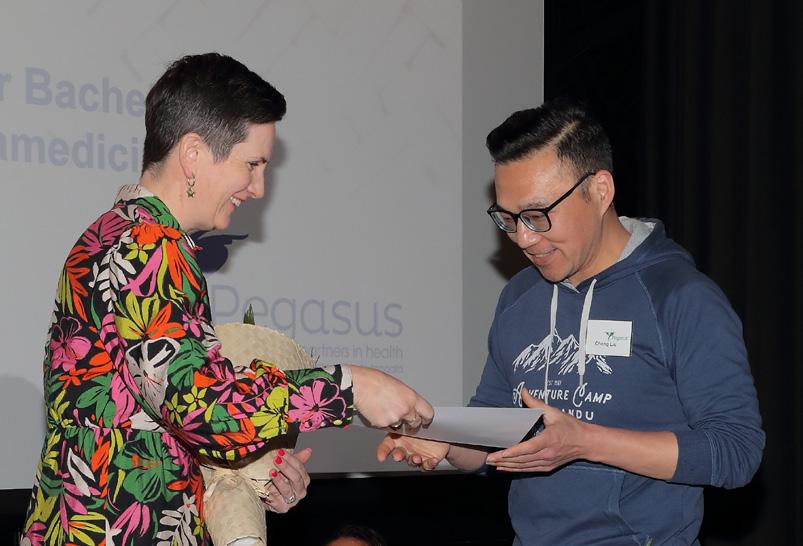
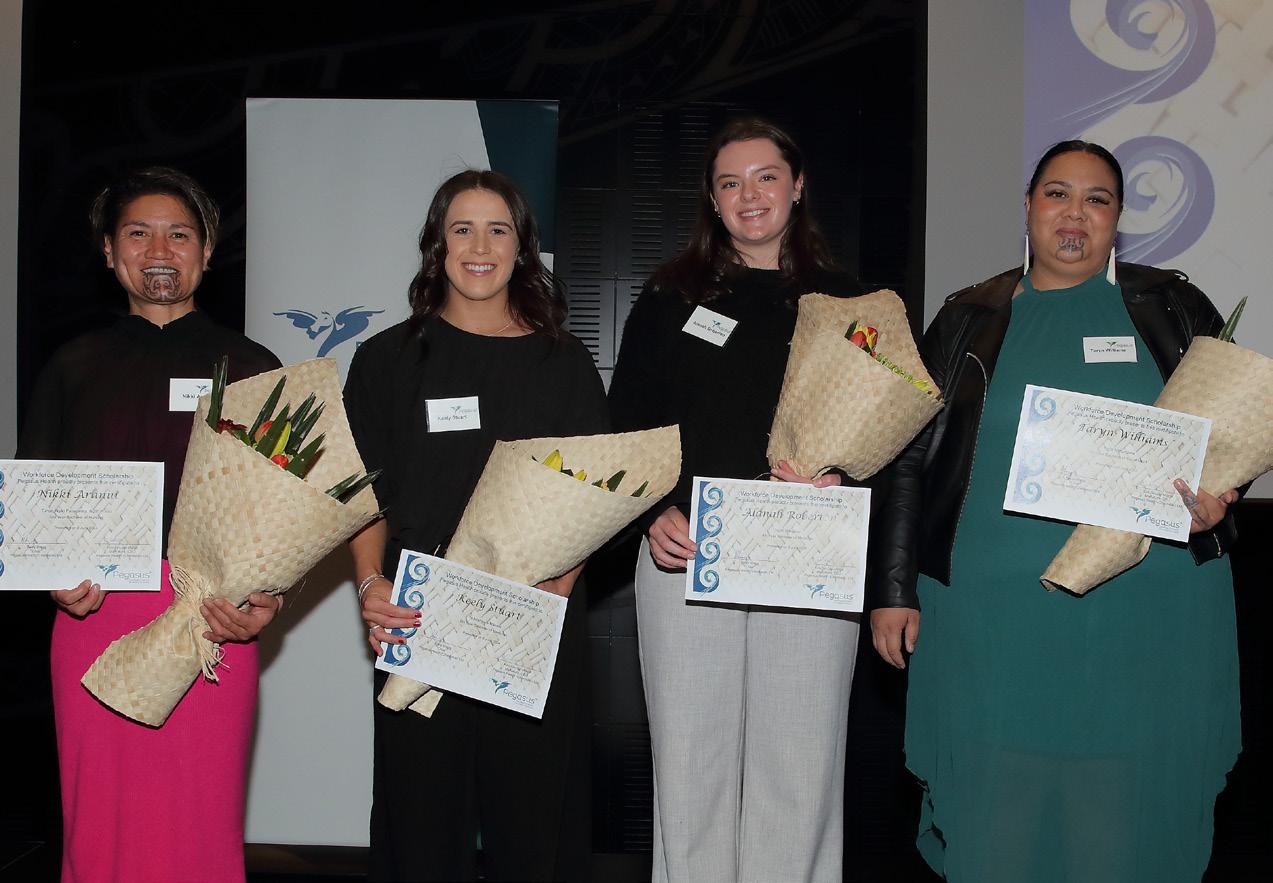
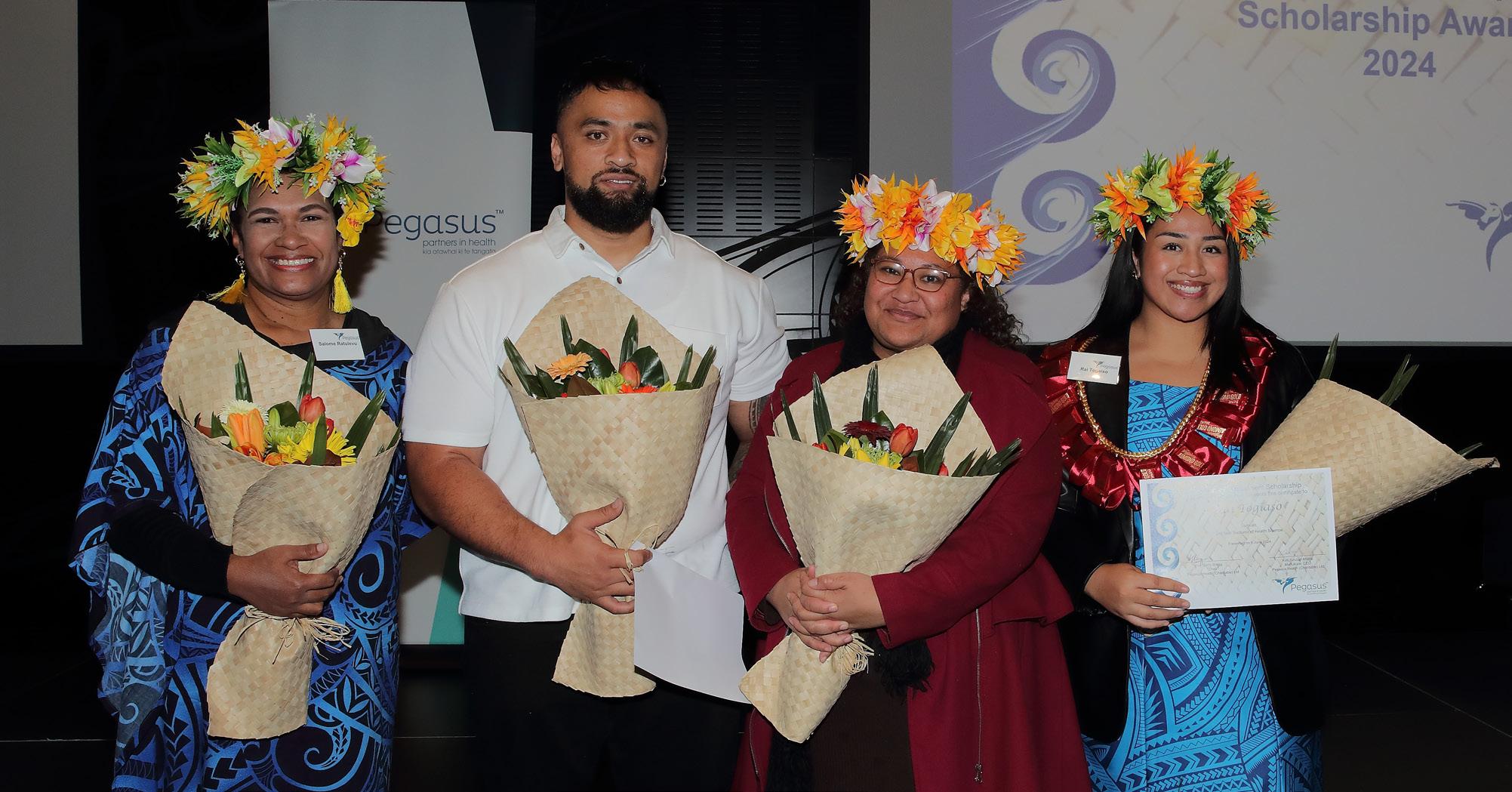
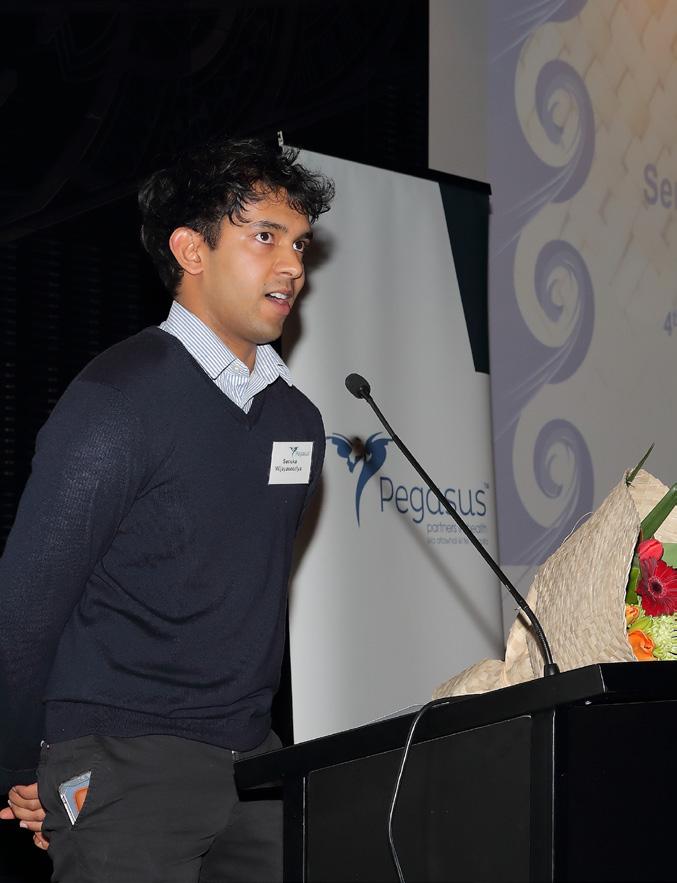
Senuka Wijayasooriya.
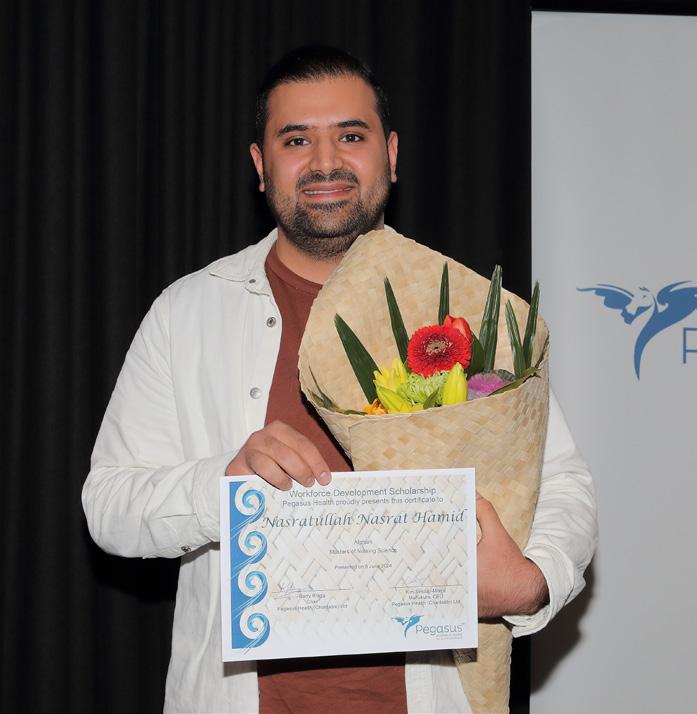
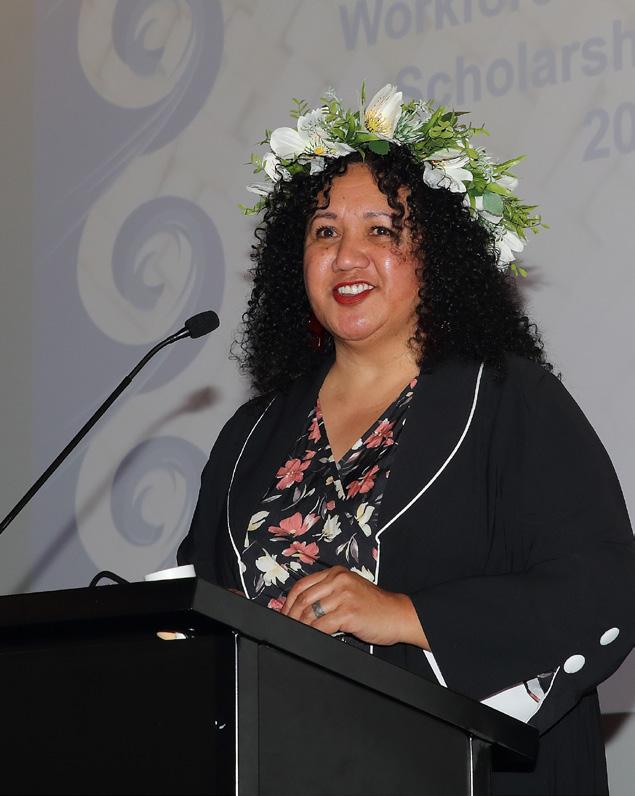
Maria Pasene.
Salome Ratuvelu, Vincent Lasei, Ester Vuluma, and Rai Togiaso.
Nikki Aranui, Keely Stuart, Alanah Roberton, and Taryn Williams.
Nasratullah Hamid.
Kim Sinclair-Morris, and Chong Liu.
The Cambridge Clinic – sexual abuse care across Canterbury and the West Coast
Led by Moira Underdown, the Cambridge Clinic provides free medical care and support for sexual assault survivors, emphasising accessibility and partnerships.
The Cambridge Clinic is a free, specialist medical service providing forensic and medical care to individuals aged 13 and over who have experienced sexual assault or abuse, either recently or in the past. The Cambridge Clinic also offer specialist assessments for those who’ve experienced non-fatal strangulation or suffocation, with or without the sexual harm.
The Clinic has recently appointed a General Manager, Moira Underdown, to develop the Clinic and respond to the increased demand for its services. The Clinic benefits from strong collaborative relationships with other agencies providing sexual violence support services. Working with these agencies to increase awareness and break down barriers to access will be vital moving forward.
Moira emphasises the importance of these partnerships: “Having time to weave these connections and ensure that Māori, Pacific peoples, and the CALD (Culturally and Linguistically Diverse) communities are aware of the free services available is a priority. Sometimes these communities are isolated and not aware of the services that may be available or would like to understand more about what happens when you visit the Clinic.”
The Clinic is also exploring the recruitment of additional non-medical roles to ensure patients receive the
comprehensive support they need. The Clinic operates weekdays and maintains a 24/7 on-call roster to ensure continuous support. For many, reliable access to support services is crucial for dealing with trauma and supporting long-term healing.
Moira brings extensive experience from public and private healthcare, government, and the non-governmental organisation (NGO) sector to her role as General Manager. She has been involved in initiatives such as the Integrated Safety Response in Canterbury and Te Aorerekura, the government strategy to eliminate family and sexual violence.
“This opportunity at the Cambridge Clinic allows me to bring those perspectives together at a time when the Clinic is looking at opportunities to grow and change to meet patient needs more effectively. It feels very exciting to be part of that and work with the amazing team and Board. What we look like in three years’ time will be a result of the input and commitment from everyone at the Clinic, and how we learn from each other, our communities, and our patients.”
For more information about the Cambridge Clinic, visit cambridgeclinic.co.nz.
Patient services include:
• Medical assessment (wellbeing check of physical and mental health)
• Contraception as part of a medical examination
• Screening and management for sexually transmitted infections
• Support to access crisis support (refuge/safe accommodation)
• Forensic assessment (gathering evidence for the police)
• Referral to other support services (counselling, support groups, court support services, and ACC).
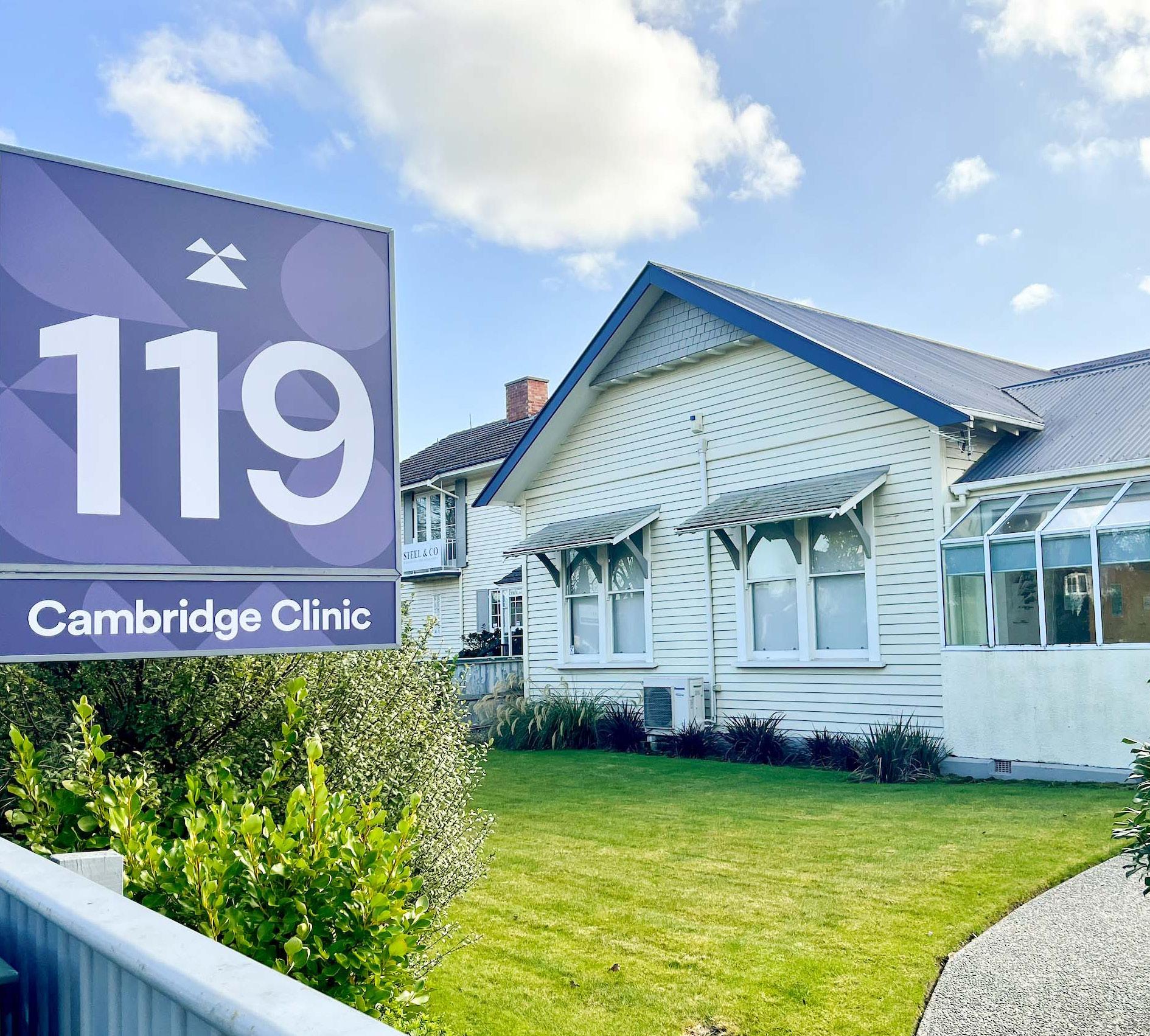
Pacific approach to Diabetes –A Fijian perspective
With the rise in Type 2 Diabetes Mellitus amongst Pacific peoples, the Solesolevaki method, is being used by the Kadavu Canterbury Club, to help members meet physical activity goals through community gardening.
Diabetes: A Burden in the Community
Behind the tropical scenes of crystalclear waters, swaying palm trees, and white sandy beaches, looms a significant health issue which has become a huge burden on the people of the Pacific Islands: Type 2 Diabetes Mellitus (T2DM).
Recently, the International Diabetes Federation published information comparing the World T2DM prevalence, and it is worrying to see that five of ten countries with the highest prevalence of the disease are from the Pacific Islands2,7. Fiji, a developing country with a
population just shy of one million, has a diabetes prevalence of 15.6%. There is concern that as people migrate, they take with them their cultural and social norms, and traditional carbohydrate-rich diet, which are factors that contribute significantly to high risks of diabetes6
Signs of this are evident in New Zealand which hosts about 381,000 Pacific peoples, or 8% of the country’s population of 5.2 million. Data shows that the prevalence of diabetes is highest in the Tongan and Fijian communities.
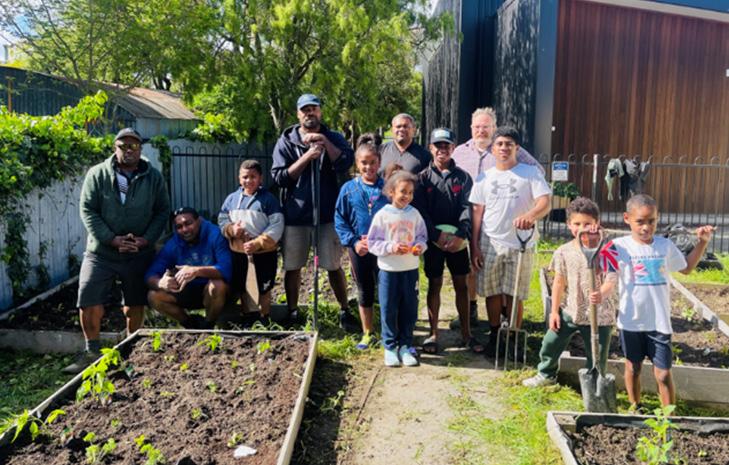
Kadavu Canterbury Club Incorporated members practicing Solesolevaki.
The stark disproportionate difference in the prevalence of diabetes in Pacific peoples underscores the need for a targeted approach that focuses on disease prevention by addressing modifiable risk factors, weight, diet, and exercise or physical activity.
Diabetes Risk Assessment
In 2023, a survey was conducted to assess the risk of T2DM among the iTaukei (Indigenous Fijians) in New Zealand. The study explored mitigating strategies derived from Talanoa (open discussions) with community leaders and volunteers.
According to data from the New Zealand Diabetes Risk Assessment tool, of the 110 iTaukei participants, 94% of the over-18 years who took part had a high risk of the disease4.
Culture-based response:
Collectivism has always been a strength of Pacific people, including the Fijian diaspora. Disease mitigation, particularly within the Fijian community, can be achieved through cultural and practical means. One such method is the culture of Solesolevaki, or communal work, which a community Talanoa identified as a possible response against the scourge of diabetes.
Solesolevaki, a Fijian traditional practice, offers a platform for community members to work towards goals set by the village chief5. In New Zealand in 2022, the Kadavu Canterbury Club Incorporated, used Solesolevaki to develop an initiative that led to the construction of 20 raised garden beds in Ōtautahi Christchurch that club members used to grow vegetables. Apart from its primary goal of promoting healthy eating for members, the
garden also became a catalyst for social wellbeing, cultural reconnection, mental and physical health, and economic stability.
The importance of the vegetable garden was underscored by a club member’s comment that it was “too expensive to live a healthy lifestyle in New Zealand”. Solesolevaki, therefore, proved that it could provide a cost-effective approach to achieving optimal community health5.
In this example, Solesolevaki encouraged high-intensity physical activities in a friendly and sociable manner. It not only facilitated the achievement of the primary goals, it also provided a platform for social interaction, the sharing of community news, and quality family time.
Sometimes, promoting health and wellbeing needs a bottom-up, community-based approach, as shown through the Solesolevaki method. This approach can empower the community to lead cultural programmes that foster personal growth, better relationships, autonomy, and competence –elements that are crucial for building self-determination and community resilience4.
For the full story and list of references, click here.
Embrace the change: A successful women’s health promotion event
The latest event held at St Martins Medical Practice, helped break down barriers for patients to engage with their health care team.
In mid-May, St Martins Medical Practice held a successful “Embrace the Change” event focusing on women’s health, specifically menopause, perimenopause, and healthy ageing.
The event attracted 123 attendees and raised over $350 for local charities, NZ Gifts of Love and Strength and Women’s Centre.
The event included informative presentations from Dr Caroline Christie on perimenopause and menopause symptoms and treatments, Dr Lizzie Loudon on lifestyle management and healthy ageing, and a local women’s health physiotherapist on pelvic floor health.
The participation of the audience in the subsequent Q&A session showed just
how important this event was in creating a dialogue around women’s health.
Display stands with health promotion materials and multidisciplinary staff were available for one-on-one discussions after the presentations. Many women remained behind to talk to nurses, health improvement practitioners (HIPs), health coaches, physiotherapists and more.
Feedback from attendees was overwhelmingly positive, with the majority rating the event 5/5 for enjoyment and helpfulness and expressing interest in future events on topics like youth mental health, dementia, anxiety, nutrition, diabetes, IBS, and chronic illness management.
Dr Loudon noted her key takeaways from this event:
• Patients are keen to engage with health promotion and value information coming from a trusted source such as their general practice.
• Health promotion and encouraging healthy lifestyle behaviours to manage/reverse ill health is joyful medicine. It can be an antidote to burn out.
• An event like this brings the whole team together and we all get the reward of having made a difference.
• Running events like this breaks down barriers for people to engage their health care team. We have had several women come in to see us because of this event.
• People believe that we truly care about their health when we do health promotion work, which is of course true.
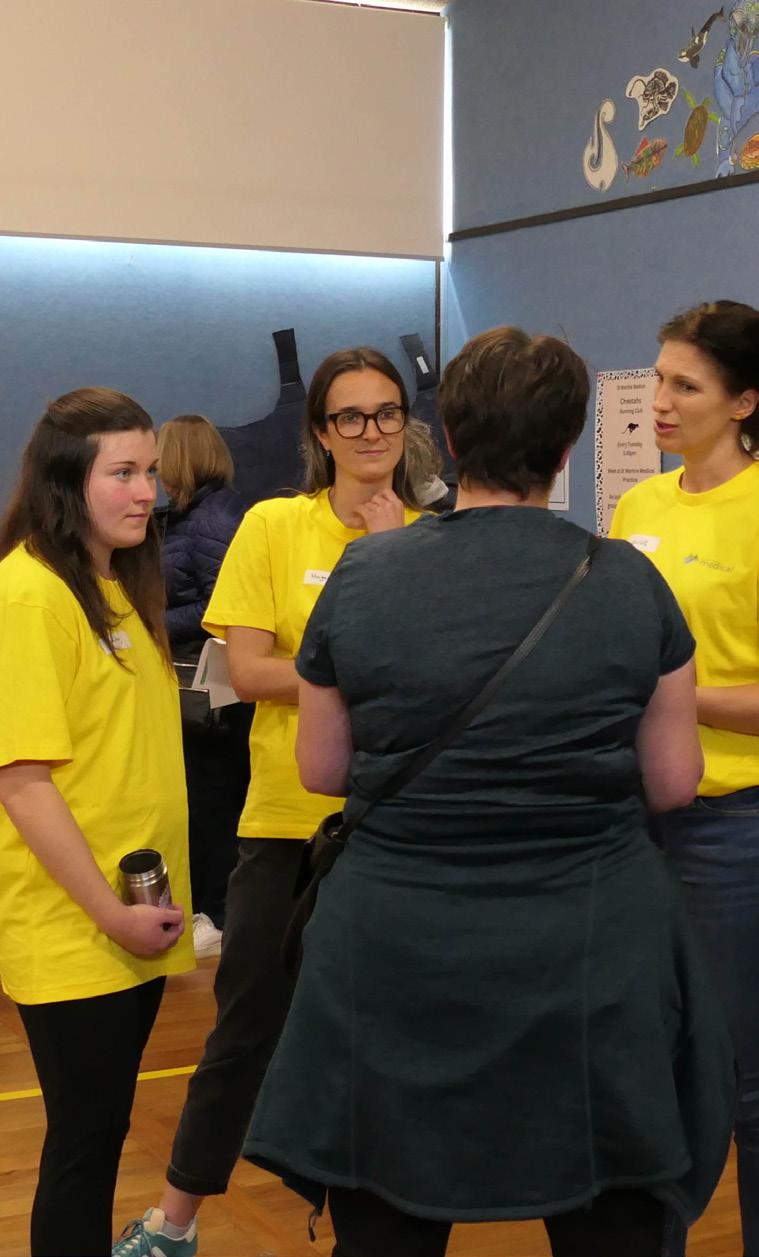
Attendee
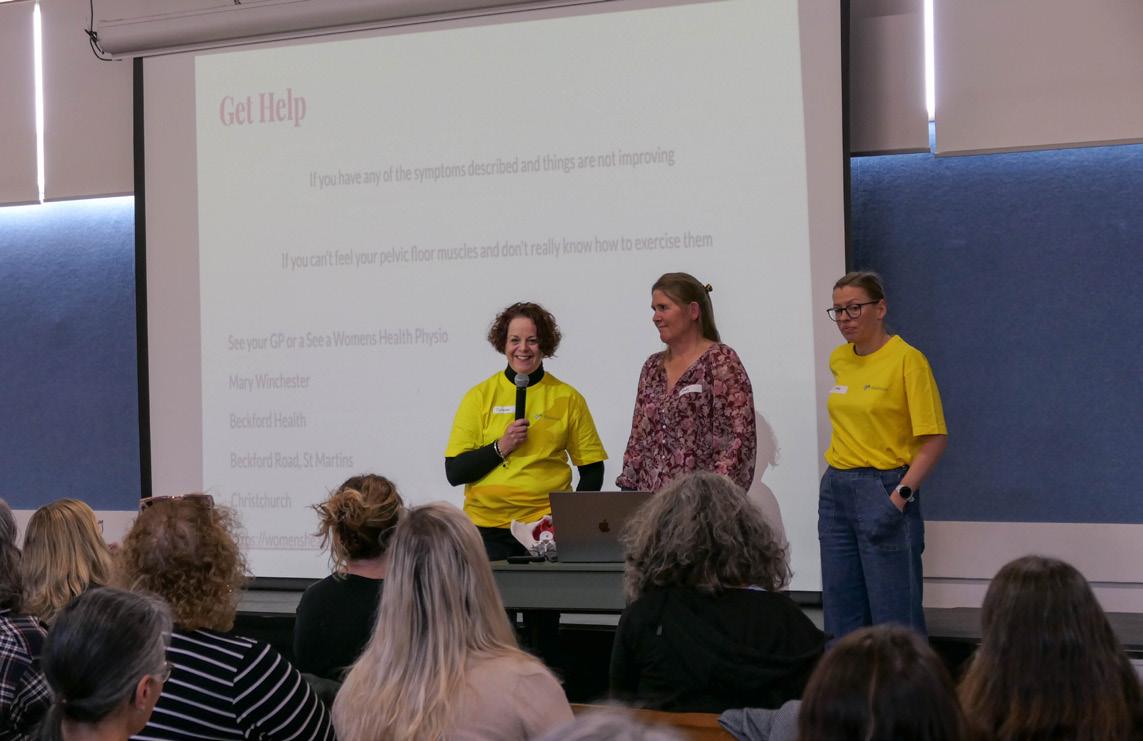
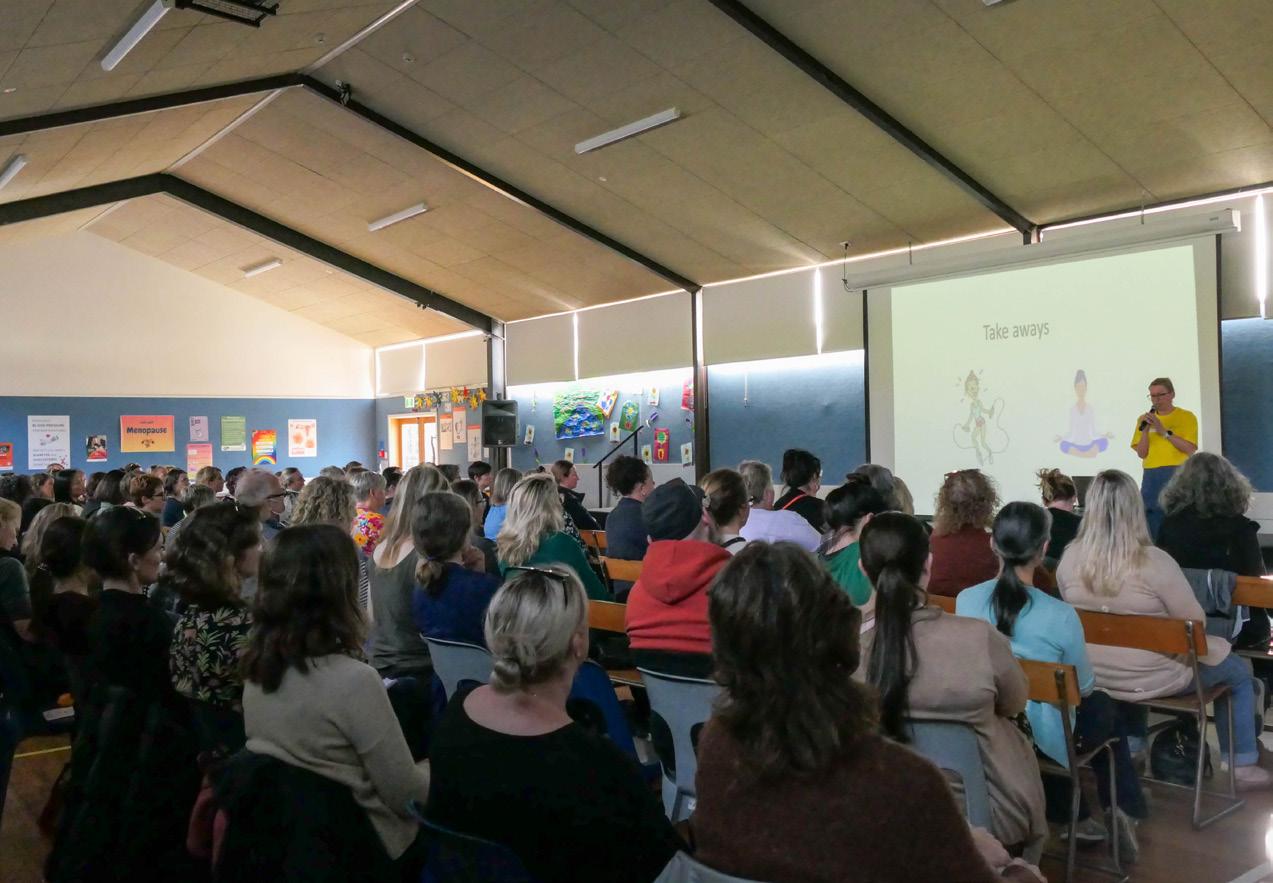
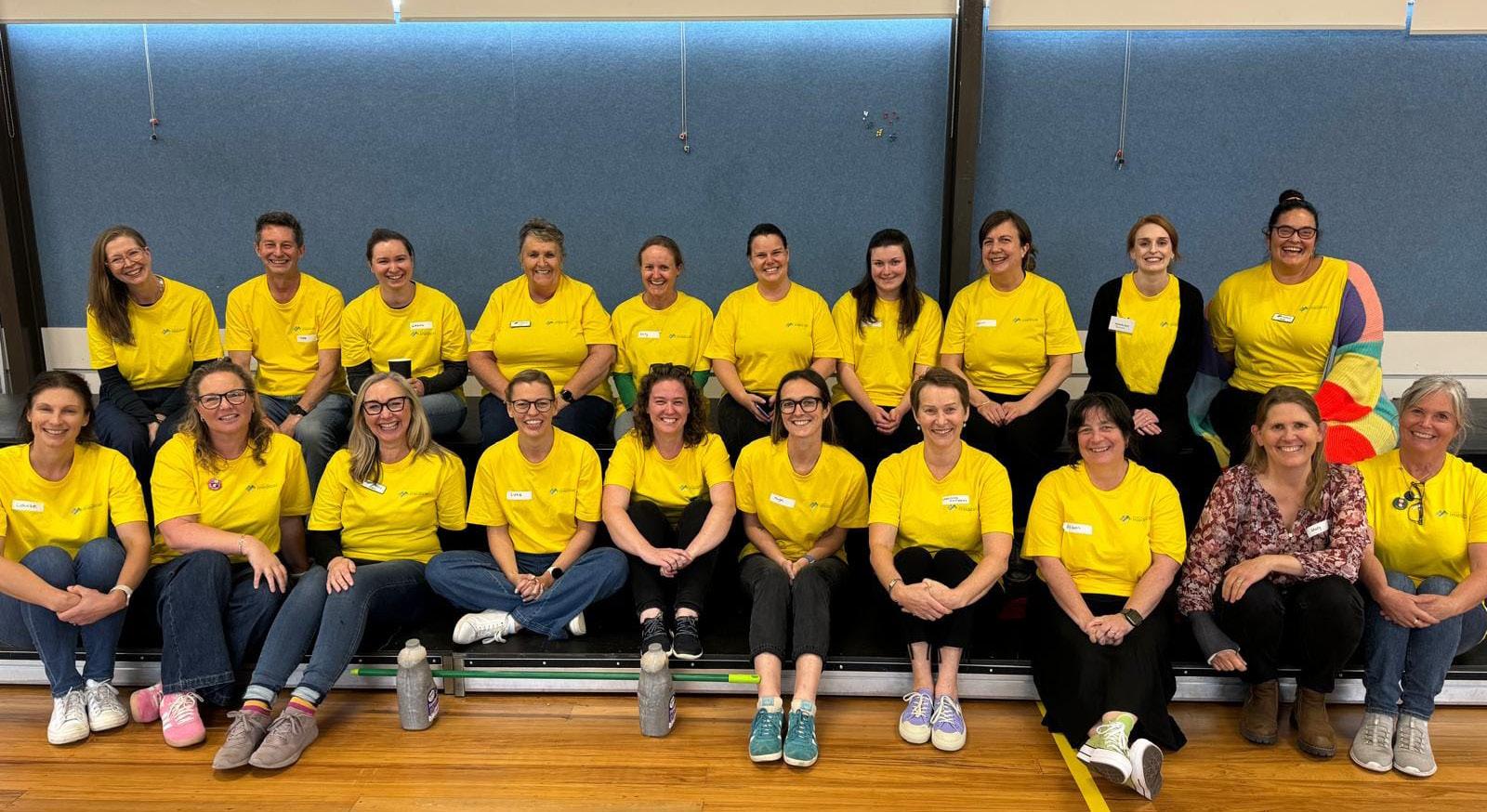
Caroline Christie, Mary Winchester, and Lizzie Loudon answer questions.
meets with St Martins staff.
Lizzie Loudon presenting.
The St Martins team.
Winter Planning
Shared Care Plans
Designed for patients with chronic and complex health and social needs who are at higher risk of needing urgent care. It provides guidance to clinicians who are unfamiliar with the patient The plans are used across other South Island regions
Types of Plans:
Acute Plans
Personalised Care Plans (PCP)
We encourage general practices to use shared care plans to facilitate the sharing of information about their patients' complex health needs
How do shared care plans work?
A patient and their Family Practice team make a plan together
The plan is then kept electronically in Health Connect South
Read more about shared care plans here.
Practice Plus
The patient's healthcare team can see the plan
Open 9am to 10pm weekdays and 8am to 8pm weekends and public holidays.
Practice Plus can offer regionally tailored services and bespoke packages specifically designed to support general practices during the winter season.
They also have capacity for same day appointments for your patients
Practice Plus offers two dedicated practice services: Inbox management
Dedicated telehealth locums - many practices are using this for managing acute demand
The clinician is set up with access to the practices PMS and completes consultations for their patients Patient co-payments and funding are directed back to the practice.
Read more about how Practice Plus can help here.
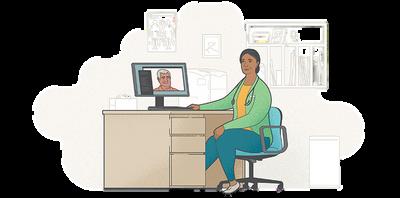
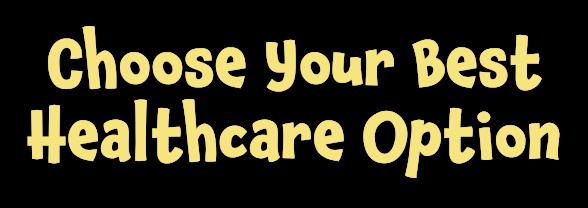
We want your feedback
If you have feedback on this issue or would like to share a suggestion for a story in our next issue please contact communication@pegasus.health.nz.
Tōtara Pegasus Health Pānui is produced by the Communications Team at Pegasus Health. Content within Tōtara Pegasus Health Pānui has been included with the approval of content providers.
If you wish to reproduce or alter and transmit any of the information or images contained within, please contact communication@pegasus.org.nz.
Phone: +64 3 379 1739
401 Madras Street
Christchurch 8013
New Zealand
P.O Box 741
Christchurch 8140
New Zealand
